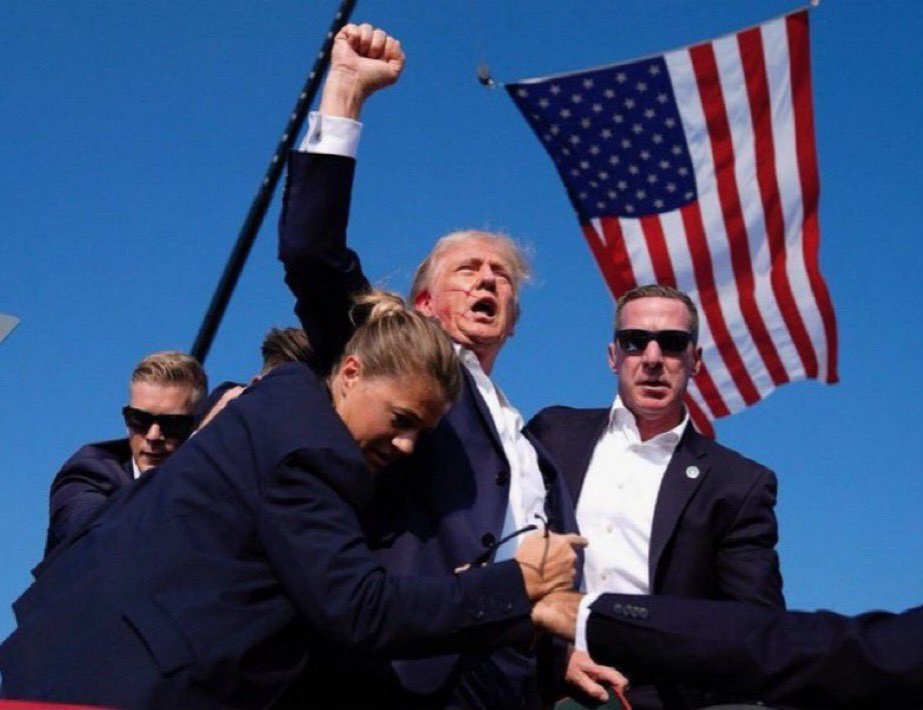Dipo Kehinde/
As the news broke, many around the world struggled to understand how a man facing criminal indictments, allegations of corruption, and a reputation for divisive rhetoric could be elected as the 47th President of the United States. To some, Donald Trump represents a “certified bad man”—a phrase that feels apt for a public figure so embroiled in legal battles. Yet, millions of Americans cast their votes for him once more, revealing deep undercurrents in the American psyche and political landscape.
This decision wasn’t a simple endorsement of Trump’s personal behavior or court record. It was, instead, a symbolic rejection of the establishment and a clear expression of defiance by voters who feel alienated from traditional power structures. To many Americans, Trump embodies not just a candidate, but an ideology of rebellion and a direct opposition to the very system that his detractors claim to protect. For better or worse, he is the chosen flag bearer of an era defined by distrust.
Defiance Against the System
At the heart of Trump’s appeal is his image as an anti-establishment outsider who challenges the conventional order. His base sees his numerous legal entanglements not as a flaw, but as evidence that he is willing to confront and disrupt entrenched institutions they believe have failed them. Whether or not the charges against him are justified matters less to his supporters than the perception that he is fighting an unjust system. To many, Trump’s legal woes reflect an elite conspiracy against their chosen representative, an attempt by “the swamp” to stifle their voice.
As court cases multiply, so does the image of Trump as a target of the “deep state” and “media elites.” The narrative of Trump as a martyr resonates with voters who feel voiceless in a nation they believe is dominated by special interests, big tech, and bureaucratic elites. These voters do not see Trump as a moral exemplar; they see him as a battering ram, a tool for dismantling what they view as a rigged system.
Economic Discontent and Identity Politics
Many Americans are disillusioned with the promise of the American Dream. Rising inequality, job insecurity, inflation, and stagnant wages are all creating anxiety for middle- and working-class Americans. Trump’s promises to “Make America Great Again” and his rhetoric on job creation, American industry, and economic protectionism resonate with those who feel that globalization and economic policies of previous administrations have left them behind.
Moreover, Trump’s messaging taps into a cultural struggle for identity, especially among his base. They see him as a champion of their values, standing against perceived liberal overreach. His opposition to critical race theory, his stance on immigration, and his unapologetic “America First” message are appealing to those who feel that traditional American values are under siege.

The Allure of a “Strongman” Leader
In times of crisis and uncertainty, populations across history have turned to leaders who project strength, decisiveness, and certainty—qualities that Trump portrays even amidst legal controversies. His brash demeanor, his unfiltered language, and his authoritarian style are viewed by supporters as strengths rather than weaknesses. In an age of polarization, many feel that compromise only leads to stagnation, and they look for a leader who speaks in absolutes, even if it means bypassing the traditional norms of presidential behavior.
Trump’s bravado and disregard for political correctness are seen by his base as a refreshing contrast to the carefully controlled language of many career politicians. His lack of adherence to conventional decorum is not perceived as a failing; rather, it is a testament to his outsider status, reinforcing his appeal as a “straight talker.”
Media Mistrust and the Cultivation of Loyalty
A critical factor in Trump’s continued success is the profound mistrust many Americans have for mainstream media. Trump has successfully convinced his supporters that any criticism of him is not grounded in genuine concern but in an agenda against him and, by extension, them. Mainstream media’s intense focus on his legal issues, instead of dissuading his supporters, has only galvanized them. In the eyes of his base, each indictment, lawsuit, or accusation is merely another attempt by “fake news” to silence him.
Furthermore, Trump has mastered the art of loyalty politics. His messaging is simple and his enemies are clearly defined—liberals, the “fake news” media, and a government machine that his supporters feel does not serve them. His public persona as a “fighter” encourages a cult of loyalty, wherein supporters see themselves as part of a movement far bigger than one election. His slogan—“America First”—is not merely a policy perspective, but a rallying cry for voters who feel they’ve been neglected and betrayed by a government they perceive as prioritizing global agendas over domestic welfare.
A Vote Driven by Fear and Distrust
Ultimately, Trump’s re-election signals a nation driven more by distrust of the establishment than by endorsement of his personal conduct. For many Americans, voting for Trump is an act of rebellion, an attempt to “drain the swamp” and reclaim power from institutions that they feel no longer serve them. Their vote for Trump was less a vote for his character and more a vote against what they see as a morally compromised system.
In a nation sharply divided, Trump’s appeal lies in his ability to galvanize those who see themselves as marginalized by the traditional power structures. He represents not just a political figure but a movement fueled by disillusionment and defiance. Whether America benefits or suffers from this decision remains to be seen, but one thing is clear: Trump’s victory in the face of adversity demonstrates the powerful sway of defiance, distrust, and the enduring desire for change, however radical it may be.
Dipo Kehinde is the Publisher/Editor-in-Chief, NewsmakersNG.
0






Wao and I was thinking Kamala win win the election, but America has chosen their preferred candidate.i wish America all the best